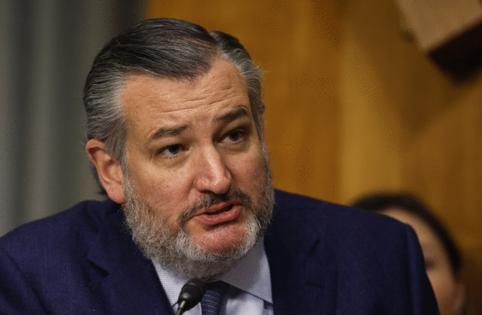Senate tries again on thorny issue of kids online safety
Published in Political News
WASHINGTON — A bipartisan Senate bill to ban social media access for kids younger than 13 that sailed through committee is facing pushback from digital rights and tech trade groups that say it’s unconstitutional and overly intrusive.
The bill, which the Senate Commerce, Science and Transportation Committee approved by voice vote on Feb. 5, is a bipartisan measure from Chairman Ted Cruz, R-Texas, and Sen. Brian Schatz, D-Hawaii, with a slate of co-sponsors from both parties.
“Kids need time to be kids to experience the real world, not to get lost in the virtual one,” Cruz said at a Commerce Committee markup of the legislation. The bipartisan backing and easy vote is one indication the legislation has legs.
But the Senate has never been the problem.
More expansive legislation to erect guardrails for kids passed last year in the Senate on a 91-3 vote. But it faltered in the House, despite a push late in the year that included support from Elon Musk, now leader of the so-called Department of Government Efficiency.
That earlier bill, from Sens. Richard Blumenthal, D-Conn., and Marsha Blackburn, R-Tenn., wasn’t a ban, but it would have required platforms to be designed in such a way as to prevent physical harms and violence. It cast a wider net than merely social media, to include video games and streaming services.
In contrast, the Cruz-Schatz measure is aimed narrowly at social media platforms. In addition to an outright ban for kids under 13, it would prevent social media companies from using algorithms to track the online behavior of kids under 17 or targeting them with tailored messages. It would also require schools to restrict access to social media sites on their computer networks.
Cruz has said he is in discussions with the House GOP leadership on the bill. Speaker Mike Johnson, R-La., and House Majority Leader Steve Scalise, R-La., who declined to set a floor vote on the kids online safety measure in the last Congress, haven’t said whether they’ll back the current measure.
However, Johnson said in December that while he was in favor of such measures, he wanted to work with the Trump administration “to get the right bill into law.”
One obstacle to the Cruz-Schatz measure may be opposition from tech trade groups and digital rights organizations.
‘Removes parents’
NetChoice, a trade group that represents companies such as Amazon, Google LLC and Meta Platforms Inc., said it welcomes the measure’s proposal to provide federal funding to schools to adopt screen-time policies for students. However, it finds other parts of the bill problematic.
“Banning young people under a certain age from accessing online services entirely and tightly limiting access for teens not only conflicts with the U.S. Constitution and creates serious privacy and surveillance concerns — it removes parents entirely from making the best decisions for their families,” NetChoice said in a statement.
The legislation “comes from very good intentions of lawmakers, and establishing national screen time standards for schools is sensible,” Amy Bos, director of state and federal affairs at NetChoice, said in an email. “However, the bill’s in-effect requirements on access to protected information jeopardize all Americans’ digital privacy and endanger free speech online.”
Instead of curbing social media use, Bos said, lawmakers ought to work with tech companies to promote digital safety, and give law enforcement agencies more resources to combat online predators.
NetChoice has sued to stop federal and state efforts on social media, and in several cases has successfully challenged laws that aim to curb use, require design changes or impose age verification.
Among the more recent efforts, the trade group filed a lawsuit against Maryland’s “Age-Appropriate Design Code” law, which bans platforms from using algorithms to keep kids online for prolonged periods of time. The law also restricts data that social media platforms can collect on kids and requires tech companies to audit their platforms for likely harms to children.
In its petition, the trade group said that “under the guise of protecting minors’ privacy online, Maryland has enacted sweeping restrictions on free speech.”
NetChoice also challenged a California kids online safety law. The 9th Circuit Court of Appeals in 2024 upheld a lower court order blocking the law from going into effect.
Also last year, the Supreme Court sent two cases brought by NetChoice against social media content laws passed by Florida and Texas back to lower courts. Writing the majority opinion, Justice Elena Kagan said social media content moderation is free speech protected by the First Amendment.
Separately, a coalition of free-speech and digital rights groups is pushing back against the Cruz-Schatz measure.
The Center for Democracy and Technology joined with the American Civil Liberties Union, the Open Technology Institute, the Electronic Frontier Foundation and Fight for the Future in opposition, arguing that the bill could erode existing child safety efforts.
“While protecting children online is imperative,” the groups said in a letter to Cruz, “this bill — if enacted — would actively undermine child safety, harm marginalized youth, erode privacy, and impose unconstitutional restrictions on young people’s ability to engage online.”
©2025 CQ-Roll Call, Inc., All Rights Reserved. Visit cqrollcall.com. Distributed by Tribune Content Agency, LLC.




























































Comments